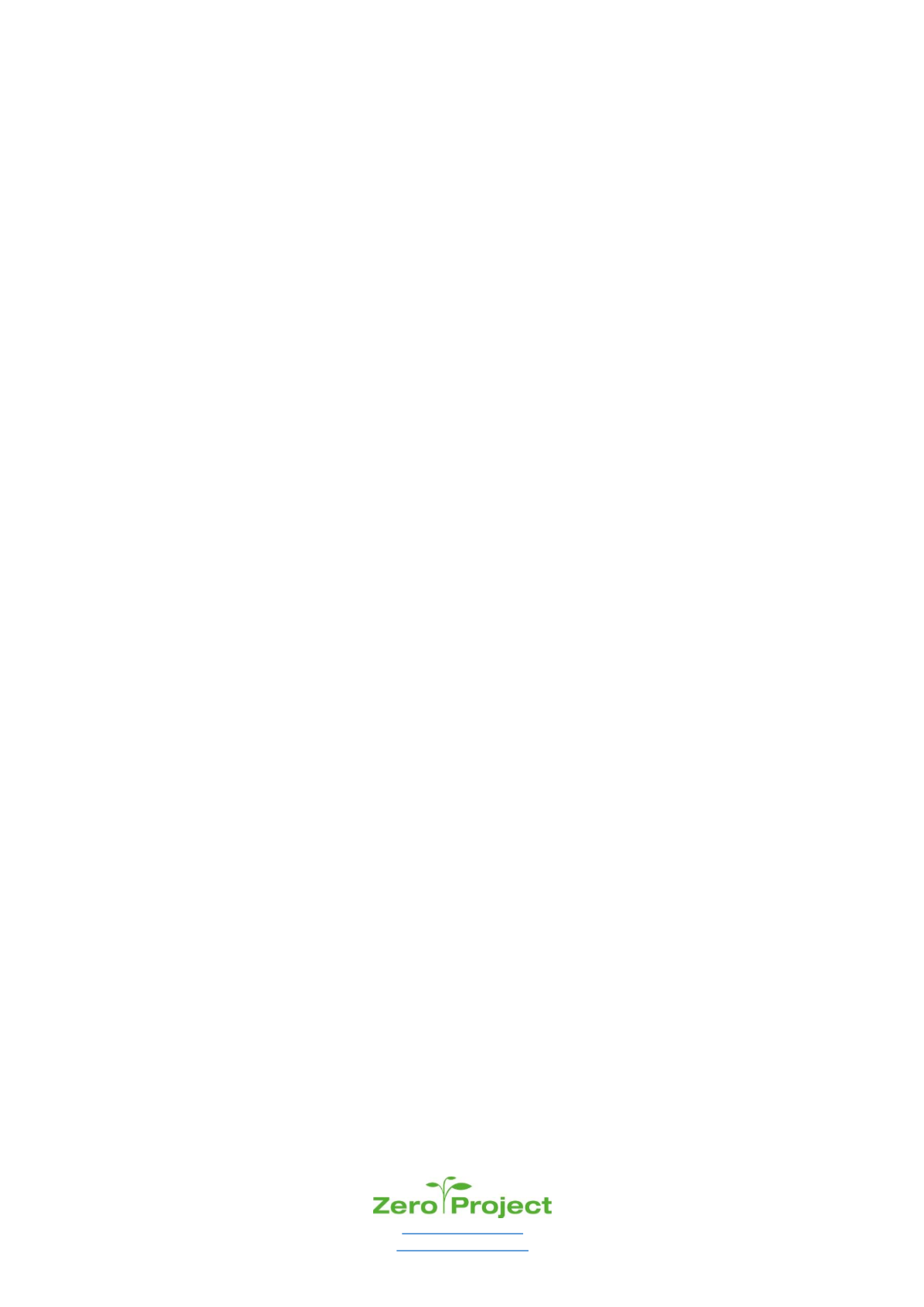
 www.zeroproject.org
office@zeroproject.org
www.zeroproject.org
office@zeroproject.org
the policy and its implementation plan has been officially approved by the Ministry of Education, the Standards and
Guidelines are awaiting approval from both the Ghana Standards Authority and the Ministry.
O
BJECTIVES
/G
OALS
T
O REDEFINE THE DELIVERY AND MANAGEMENT OF EDUCATION SERVICES TO RESPOND TO THE DIVERSE NEEDS OF ALL PUPILS
/
STUDENTS
WITHIN THE FRAMEWORK OF
U
NIVERSAL
D
ESIGN FOR
L
EARNING
(UDL)
AND
C
HILD
-F
RIENDLY
S
CHOOLS
(CFS)
MODEL
,
BY ENHANCING
PARTICIPATION OF ALL STAKEHOLDERS IN PLANNING
,
IMPLEMENTATION AND COORDINATION
;
BY PROMOTING A CHILD
-
FRIENDLY
ENVIRONMENT FOR ENHANCING THE QUALITY OF EDUCATION THROUGH
UDL;
BY INCREASING PARTICIPATION IN EDUCATIONAL ACCESS FOR
PERSONS WITH
SEN;
AND BY ENHANICNG MANAGEMENT OF EDUCATION SERVICES
.
K
EY
F
EATURES
(W
ITH
A
DDITIONS FROM THE
Z
ERO
P
ROJECT
T
EAM
)
Ghana’s Inclusive Education Policy of 2013
is to be classified as
national
non legally-binding regulatory and distributive
policy
that
comprises:
1.
The introduction and conceptual framework in Section 1: It defines the
“
Inclusive Education Philosophy
”, “
Special
Educational Needs
”,
the concepts of Child Friendly Schools, Universal Design for Learning and Community Based
Rehabilitation Programme, listing the persons with SEN targeted (but not limited to).
2.
The policy basis in Section 2: It lays out the national and international commitments on which the policy is based,
the guiding principles and policy scope: “addressing issues of inclusive education that relates to persons with mild
and severer special educational needs at all levels of education”
3.
The strategic framework in Section 3: It contains the policy goal, objectives and strategies to achieve those
objectives, identifies the policy drivers: curriculum (adaptations for pupils with SEN; class size max 30 people;
allowing for reasonable accommodation during examinations), professional development (teachers equipped with
the pedagogical skills to meet the needs of children with special needs using child-centred approach), assessment
(alternatives for pupils with SEN), transition programmes (professional trained individuals help youth/children with
disabilities to transit from one level to another more successfully),
Section four defines the institutional framework coordination as well as monitoring and evaluation: The policy’s
implementation, monitoring, evaluation and impact assessment is the responsibility of the Ministry of Education
and its Agencies. In section 4.6 (Responsibilities of Stakeholders), the duty of other actors is also listed, at central
(ministry of finances) and local level (schools, parents). Both private and public institution shall implement inclusive
education. The regular school shall provide education for all children regardless of their physical, intellectual, etc.
conditions. Special schools should work hand-in-hand with regular schools to accommodate children with special
needs in inclusive settings and this provision lays out how the transformation of special schools into resources to
assist inclusion in the mainstream system can be done, by using the expertise of special educators and special
schools to support regular teachers and mainstream schools at district, school and classroom levels. However, if it is
proven through assessment that the child is incapable of benefiting from the regular classroom attendance, he/she
should be placed in the special unit within the inclusive school. Beyond basic education, under the policy the
















